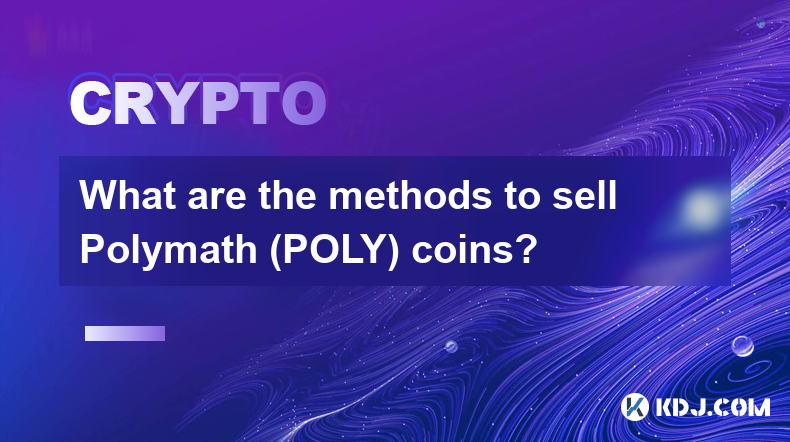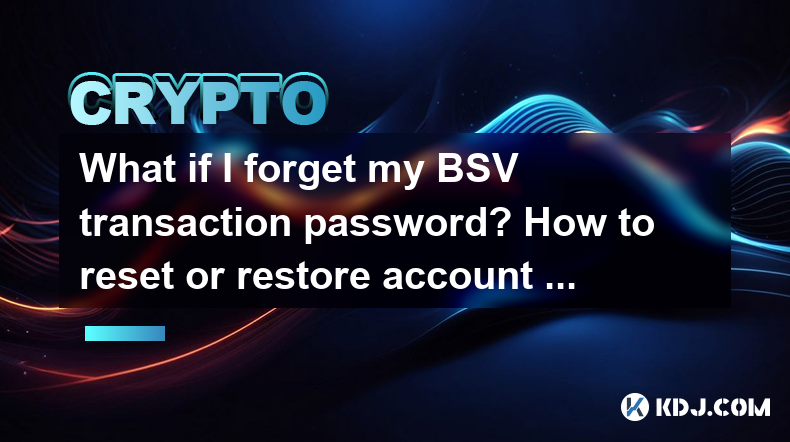-
 Bitcoin
Bitcoin $96,508.5911
-0.92% -
 Ethereum
Ethereum $1,838.4653
-0.08% -
 Tether USDt
Tether USDt $1.0003
0.00% -
 XRP
XRP $2.2142
-0.12% -
 BNB
BNB $599.0086
-0.08% -
 Solana
Solana $148.7294
-0.87% -
 USDC
USDC $1.0000
-0.02% -
 Dogecoin
Dogecoin $0.1792
-1.10% -
 Cardano
Cardano $0.7223
2.19% -
 TRON
TRON $0.2472
0.22% -
 Sui
Sui $3.3412
-3.22% -
 Chainlink
Chainlink $14.4807
-1.60% -
 Avalanche
Avalanche $20.9283
-2.20% -
 Stellar
Stellar $0.2735
-1.33% -
 UNUS SED LEO
UNUS SED LEO $8.9254
0.08% -
 Toncoin
Toncoin $3.1646
-0.14% -
 Shiba Inu
Shiba Inu $0.0...01324
-1.68% -
 Hedera
Hedera $0.1842
-1.63% -
 Bitcoin Cash
Bitcoin Cash $369.7111
-3.04% -
 Hyperliquid
Hyperliquid $20.7437
-0.99% -
 Litecoin
Litecoin $87.2417
-1.38% -
 Polkadot
Polkadot $4.1326
-1.80% -
 Dai
Dai $1.0001
0.00% -
 Monero
Monero $279.3151
-3.07% -
 Bitget Token
Bitget Token $4.3843
-1.34% -
 Ethena USDe
Ethena USDe $1.0007
-0.01% -
 Pi
Pi $0.5876
-1.18% -
 Pepe
Pepe $0.0...08457
-3.07% -
 Uniswap
Uniswap $5.1911
-1.50% -
 Aptos
Aptos $5.2513
-3.80%
What are the methods to sell Polymath (POLY) coins?
Individuals holding Polymath (POLY) coins can choose from various methods to sell them, including cryptocurrency exchanges, P2P platforms, and OTC desks, each offering unique combinations of fees, security, and convenience.
Dec 31, 2024 at 04:35 am

Key Points
- Understanding the available options for selling Polymath (POLY) coins.
- Step-by-step guidance on each method, covering exchanges, P2P platforms, and OTC desks.
- Detailed comparison of fees, security, and convenience for each method.
- Frequently Asked Questions (FAQs) section addressing common queries about selling POLY.
Selling Polymath (POLY) Coins: A Comprehensive Guide
Polymath (POLY) is a Security Token Protocol (STO) platform that allows the issuance and management of digital securities. While Polymath offers a unique framework for tokenized securities, holders may need to sell their POLY coins for various reasons. This article provides a thorough examination of the methods available for selling POLY, empowering traders with the knowledge to make informed decisions based on their specific requirements.
Methods to Sell Polymath (POLY) Coins
1. Cryptocurrency Exchanges
- Centralized exchanges (CEXs) connect buyers and sellers through a regulated platform.
- They offer high liquidity and competitive prices.
- However, CEXs may require KYC/AML procedures and charge trading fees.
2. Peer-to-Peer (P2P) Platforms
- P2P platforms facilitate direct transactions between buyers and sellers without a central intermediary.
- They provide greater privacy and control over transaction terms.
- However, liquidity may be lower than on CEXs, and disputes can be challenging to resolve.
3. Over-the-Counter (OTC) Desks
- OTC desks are specialized brokers that cater to large-volume traders.
- They offer personalized service, tailored pricing, and minimal trading fees.
- OTC desks require a certain level of trading experience and may impose entry barriers for beginners.
Step-by-Step Guides
Selling POLY on Cryptocurrency Exchanges:
- Open an account on a reputable exchange that supports POLY trading.
- Complete KYC/AML procedures (if required).
- Create a sell order for your desired POLY amount and sell price.
- Monitor the order execution and withdraw the proceeds to your preferred wallet.
Selling POLY on Peer-to-Peer Platforms:
- Choose a P2P platform that offers POLY trading.
- Create an account and browse available offers.
- Contact the desired buyer/seller and negotiate the terms of the transaction.
- Execute the trade and transfer POLY to the specified wallet.
Selling POLY via Over-the-Counter Desks:
- Identify an OTC desk that specializes in POLY trading.
- Contact the desk and present your sell request.
- Negotiate pricing and other terms of the transaction.
- Complete the trade and receive the proceeds in the agreed-upon currency.
Comparison of Methods
Fees:
- CEXs: Typically charge trading fees based on the transaction volume.
- P2P Platforms: Fees vary, but may include listing fees and transaction fees.
- OTC Desks: Offer personalized pricing and may have minimum trading requirements.
Security:
- CEXs: Regulated exchanges offer robust security measures, including cold storage and SSL encryption.
- P2P Platforms: Security levels vary depending on the platform, but generally less secure than CEXs.
- OTC Desks: Provide highly secure transactions through direct communication with brokers.
Convenience:
- CEXs: Offer easy access and high liquidity.
- P2P Platforms: Provide greater control and privacy.
- OTC Desks: Offer personalized service and tailored transactions.
Frequently Asked Questions (FAQs)
Q: Which method is best for selling small amounts of POLY?
A: For small amounts, P2P platforms offer lower fees and greater flexibility.
Q: Can I avoid KYC/AML requirements when selling POLY?
A: Most regulated exchanges and some OTC desks require KYC/AML procedures.
Q: How long does it take to sell POLY on different platforms?
A: Execution times vary depending on the method and platform. CEXs offer instant execution, while P2P and OTC transactions can take several hours or days.
Q: Is there a minimum trade requirement for selling POLY via OTC desks?
A: Yes, OTC desks often have minimum trade requirements that can range from thousands to millions of dollars.
Q: Can I trade POLY directly with other users without using an intermediary?
A: Yes, P2P platforms allow users to transact peer-to-peer without a central authority.
Disclaimer:info@kdj.com
The information provided is not trading advice. kdj.com does not assume any responsibility for any investments made based on the information provided in this article. Cryptocurrencies are highly volatile and it is highly recommended that you invest with caution after thorough research!
If you believe that the content used on this website infringes your copyright, please contact us immediately (info@kdj.com) and we will delete it promptly.
- The meme coin mania is back—and it’s louder, weirder, and more profitable than ever
- 2025-05-04 00:00:52
- Troller Cat Presale Goes Wild with 10k% ROI as Brett Eyes $2B MarketCap and Neiro Hits ATH
- 2025-05-04 00:00:52
- Ethereum (ETH) Co-Founder Vitalik Buterin Calls for a Network Architecture Overhaul
- 2025-05-03 23:55:13
- Baby Doge Holds Steady, MEW Gains Traction, But Could Troller Cat Be the Meme Coin Market's Next Breakout
- 2025-05-03 23:55:13
- The Best Meme Coin to Buy Before the Next Crypto Bull Run: Top 6 Watchlist
- 2025-05-03 23:50:13
- IRS Crypto Tax Chiefs' Resignations Leave a Critical Gap
- 2025-05-03 23:50:13
Related knowledge

BSV transaction fees suddenly increased? How to adjust the handling fee to save costs?
May 02,2025 at 06:42am
Understanding BSV Transaction FeesBSV (Bitcoin SV) aims to fulfill the original vision of Bitcoin as a peer-to-peer electronic cash system. One of the key elements in this system is the transaction fee, which compensates miners for including transactions in the blockchain. Recently, users have noticed a sudden increase in BSV transaction fees, which can...

Does BSV transaction require real-name authentication? Is anonymous trading feasible?
May 03,2025 at 03:14pm
The question of whether BSV (Bitcoin SV) transactions require real-name authentication and whether anonymous trading is feasible is a complex one, deeply intertwined with the broader dynamics of cryptocurrency regulations and blockchain technology. Let's delve into these aspects to provide a comprehensive understanding. Understanding BSV and Its Transac...

How to solve the high slippage of BSV transactions? How to choose between limit and market orders?
May 02,2025 at 09:01pm
High slippage can be a significant concern for traders dealing with Bitcoin SV (BSV) transactions. Slippage refers to the difference between the expected price of a trade and the price at which the trade is actually executed. This can occur in fast-moving markets or when there is low liquidity. To address this issue, understanding the mechanics of slipp...

What if BSV node synchronization is slow? How to optimize local wallet performance?
May 03,2025 at 04:35pm
When dealing with BSV (Bitcoin SV) node synchronization and optimizing local wallet performance, it's crucial to understand the underlying issues and implement effective solutions. Slow synchronization and poor wallet performance can significantly hinder your experience with the BSV network. This article will delve into the reasons behind slow BSV node ...

How to check BSV transaction records? How to use the blockchain browser?
May 03,2025 at 06:50am
Checking BSV (Bitcoin SV) transaction records and using a blockchain browser are essential skills for anyone involved in the cryptocurrency space. These tools allow you to verify transactions, check wallet balances, and understand the flow of funds on the blockchain. This article will guide you through the process of checking BSV transaction records and...

What if I forget my BSV transaction password? How to reset or restore account permissions?
May 02,2025 at 02:49pm
Forgetting your BSV (Bitcoin SV) transaction password can be a stressful experience, but there are steps you can take to reset or restore your account permissions. This article will guide you through the process, ensuring you understand each step and potential solutions available to you. Understanding BSV Transaction PasswordsBSV transaction passwords a...

BSV transaction fees suddenly increased? How to adjust the handling fee to save costs?
May 02,2025 at 06:42am
Understanding BSV Transaction FeesBSV (Bitcoin SV) aims to fulfill the original vision of Bitcoin as a peer-to-peer electronic cash system. One of the key elements in this system is the transaction fee, which compensates miners for including transactions in the blockchain. Recently, users have noticed a sudden increase in BSV transaction fees, which can...

Does BSV transaction require real-name authentication? Is anonymous trading feasible?
May 03,2025 at 03:14pm
The question of whether BSV (Bitcoin SV) transactions require real-name authentication and whether anonymous trading is feasible is a complex one, deeply intertwined with the broader dynamics of cryptocurrency regulations and blockchain technology. Let's delve into these aspects to provide a comprehensive understanding. Understanding BSV and Its Transac...

How to solve the high slippage of BSV transactions? How to choose between limit and market orders?
May 02,2025 at 09:01pm
High slippage can be a significant concern for traders dealing with Bitcoin SV (BSV) transactions. Slippage refers to the difference between the expected price of a trade and the price at which the trade is actually executed. This can occur in fast-moving markets or when there is low liquidity. To address this issue, understanding the mechanics of slipp...

What if BSV node synchronization is slow? How to optimize local wallet performance?
May 03,2025 at 04:35pm
When dealing with BSV (Bitcoin SV) node synchronization and optimizing local wallet performance, it's crucial to understand the underlying issues and implement effective solutions. Slow synchronization and poor wallet performance can significantly hinder your experience with the BSV network. This article will delve into the reasons behind slow BSV node ...

How to check BSV transaction records? How to use the blockchain browser?
May 03,2025 at 06:50am
Checking BSV (Bitcoin SV) transaction records and using a blockchain browser are essential skills for anyone involved in the cryptocurrency space. These tools allow you to verify transactions, check wallet balances, and understand the flow of funds on the blockchain. This article will guide you through the process of checking BSV transaction records and...

What if I forget my BSV transaction password? How to reset or restore account permissions?
May 02,2025 at 02:49pm
Forgetting your BSV (Bitcoin SV) transaction password can be a stressful experience, but there are steps you can take to reset or restore your account permissions. This article will guide you through the process, ensuring you understand each step and potential solutions available to you. Understanding BSV Transaction PasswordsBSV transaction passwords a...
See all articles




















































































